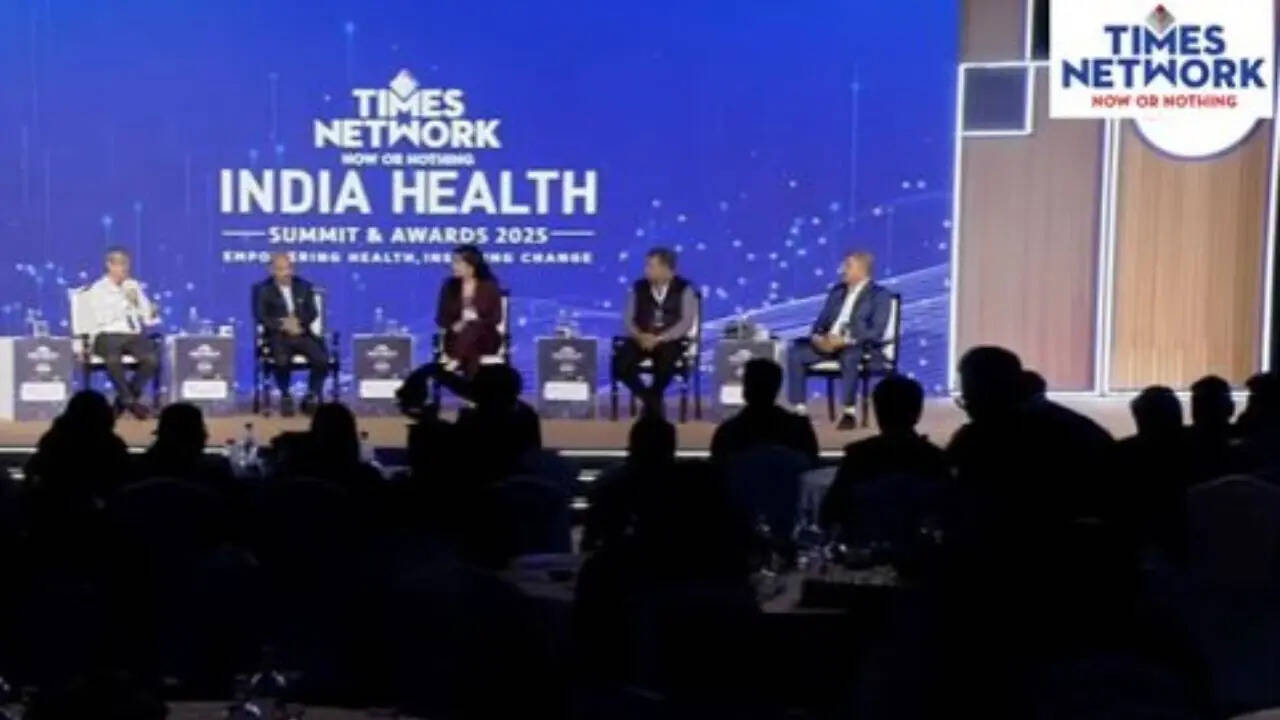Health
Experts Demand Stronger Regulations Against Counterfeit Drugs

Concerns over the rising incidence of counterfeit drugs emerged prominently at the Times Network India Health Summit & Awards 2025. Experts on the panel, titled “Combatting Spurious and Substandard Drugs in India: Ensuring Trust, Safety, and Compliance,” called for more stringent government regulations. The discussion included notable figures such as Durga Prasad Satapathy, Executive Vice President of Intas Pharmaceuticals Ltd., Dr. Rohit Gutgutia, Medical Director of Nova IVF Fertility, and Dr. Pratik Das, Medical Director and Chief at the Kolkata Kidney Institute.
The panel highlighted the severe risks posed by counterfeit medications, which have led to multiple fatalities, including the tragic deaths of at least 11 children in Rajasthan and Madhya Pradesh. Dr. Satapathy noted the alarming accuracy with which counterfeit drugs are produced, making it nearly impossible for even trained professionals to distinguish them from legitimate products. “Identifying counterfeit drugs is impossible. There is no process that you can identify whether this drug is spurious or counterfeit because those in this business replicate, and sometimes it’s even better than the original,” he stated.
The ramifications of counterfeit drugs extend beyond individual health risks. Medications are essential for managing chronic diseases, preventing pregnancy, and treating life-threatening conditions. Alarmingly, many individuals consume counterfeit drugs unknowingly, even in countries with robust healthcare systems. This situation raises significant concerns about public health and safety.
Antibiotic Resistance and Public Health Crisis
Doctors on the panel indicated that counterfeit drugs have contributed to the rise of antibiotic resistance. Dr. Gutgutia explained, “If a medicine you prescribe to the patient is substandard, the patient does not get cured. But the bacteria keep growing, and more resistance develops. In several ways, it becomes dangerous for both the patients and the doctor.” Antibiotic resistance occurs when bacteria evolve to resist the effects of antibiotics, leading to the emergence of “superbugs” that are increasingly difficult to treat.
Dr. Das emphasized the need for greater collaboration among drug regulators at both state and central levels to combat the growing threat of counterfeit drugs. “Rules are there, but there is a need for work to be done more efficiently on them. Regulators – both at the central and state levels – should enforce control,” he said.
Counterfeit drugs are often manufactured to resemble legitimate medications, yet they frequently contain little to no active ingredients. In some cases, these drugs can include harmful substances such as mercury, arsenic, rat poison, or even cement. The World Health Organization (WHO) reports that one in every ten medicines fails in low- and middle-income countries due to being substandard or falsified, posing a serious risk to patient health.
The discussion at the summit underscored the urgent need for concerted efforts to protect patients from counterfeit medications and ensure that regulations are enforced effectively. As the global community grapples with the implications of counterfeit drugs, the call for stronger regulations has never been more pressing.
-

 World5 months ago
World5 months agoSBI Announces QIP Floor Price at ₹811.05 Per Share
-

 Lifestyle5 months ago
Lifestyle5 months agoCept Unveils ₹3.1 Crore Urban Mobility Plan for Sustainable Growth
-

 Science4 months ago
Science4 months agoNew Blood Group Discovered in South Indian Woman at Rotary Centre
-

 World5 months ago
World5 months agoTorrential Rains Cause Flash Flooding in New York and New Jersey
-

 Top Stories5 months ago
Top Stories5 months agoKonkani Cultural Organisation to Host Pearl Jubilee in Abu Dhabi
-

 Sports4 months ago
Sports4 months agoBroad Advocates for Bowling Change Ahead of Final Test Against India
-

 Science5 months ago
Science5 months agoNothing Headphone 1 Review: A Bold Contender in Audio Design
-

 Top Stories5 months ago
Top Stories5 months agoAir India Crash Investigation Highlights Boeing Fuel Switch Concerns
-

 Business5 months ago
Business5 months agoIndian Stock Market Rebounds: Sensex and Nifty Rise After Four-Day Decline
-

 Sports4 months ago
Sports4 months agoCristian Totti Retires at 19: Pressure of Fame Takes Toll
-

 Politics5 months ago
Politics5 months agoAbandoned Doberman Finds New Home After Journey to Prague
-

 Top Stories5 months ago
Top Stories5 months agoPatna Bank Manager Abhishek Varun Found Dead in Well









